Can Cats Eat Grasshoppers? Are They Poisonous or Safe?
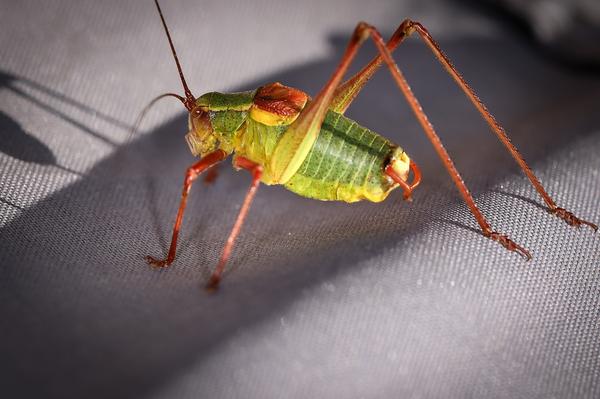
Can cats really eat grasshoppers?
I mean, really, who knows what kind of reaction those little buggers might cause? 😮
Now, I get it, you're concerned about the health of your feline friend.
You might be thinking, "Is this safe? What if my furball ends up in a world of trouble?"
Let's dive right in, shall we?
Get ready to discover the truth about cats and grasshoppers.
Let the investigation begin.
Can Grasshoppers Harm Cats' Health or Cause Fatality?
While grasshoppers generally don't pose a significant threat to cats, there are still risks involved. The hard exoskeleton of grasshoppers can cause mouth discomfort and stomach irritation. Avoid feeding brightly colored grasshoppers and be aware that they can carry parasites. Seek veterinary care if your cat shows symptoms after eating grasshoppers.
When your beloved cat munches on grasshoppers, it can lead to some health problems.
Your furry friend may experience mouth and throat irritation as well as gastrointestinal distress.
But let me reassure you for a moment.
I want to dive into the potential consequences of cats eating grasshoppers, so you have all the facts and knowledge to make the right decision.
In general, grasshoppers don't pose a significant threat to cats.
However, there are still risks at play, especially when it comes to toxic substances and parasites that could be harmful to your adorable pet.
To determine how risky it is, you should consider factors like the size and toxicity of the grasshopper.
The hard exoskeleton of grasshoppers can cause mouth discomfort and stomach irritation for your feline companion.
If your cat ends up consuming a large number of grasshoppers, they might experience an upset stomach and mouth irritation due to the exoskeleton and parasites these insects carry.
You need to remember one crucial thing:
Never feed your cat brightly colored grasshoppers.
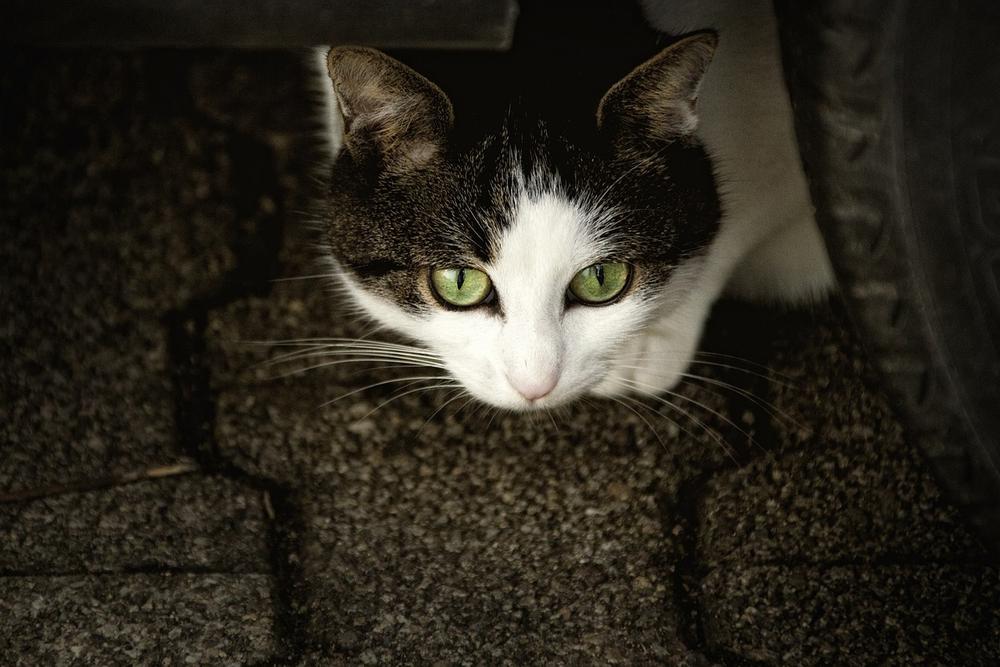
These eye-catching bugs usually contain toxins and poisons that are definitely not good news for your cat.
Stick to green and brown grasshoppers since they are considered safe for them to eat.
Another important point to PLEASE bear in mind is that grasshoppers can carry parasites.
So, it's wise to avoid including them in your cat's mealtime adventures.
After all, you wouldn't want your furry friend to harbor any unwelcome guests within their tummy!
In case your cat exhibits symptoms such as gastrointestinal distress, restlessness, lethargy, or even aggression after indulging in a grasshopper snack, seeking veterinary care promptly is essential.
Your vet will provide personalized advice and guidance based on your cat's specific needs.
When it comes to your cat's well-being, making informed decisions about what they eat is paramount.
Now equipped with this knowledge about grasshoppers, you can confidently navigate choices that foster your cat's health and happiness.
And if you're concerned about what other critters your curious feline friend can feast on, you'll be happy to know that I've got you covered.
In my article, Do Cats Eat Caterpillars, I delve into the intriguing question of whether cats can munch on these wriggly creatures and if caterpillars pose any danger to their health.
It's a must-read for cat owners who want to know more about their furry companion's adventurous palate.
Can Grasshoppers Bite?
Can grasshoppers bite?
The short answer is yes. Certain species of grasshoppers do have mandibles strong enough to take a nip and potentially cause some trouble.
But here's the thing...
Grasshopper bites, on their own, aren't dangerous or poisonous for us humans.
They may bring temporary discomfort – like a little pinch – nothing too serious.
However, if you're a cat owner, you need to be extra cautious.
Potentially harmful grasshoppers can also bite or sting cats, leading to allergic reactions or even venomous effects.
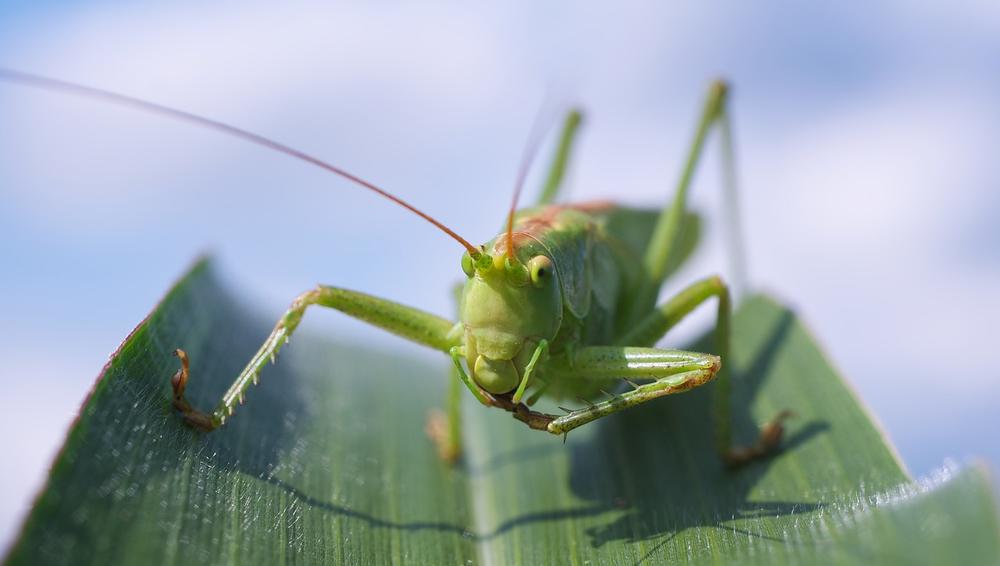
Now that's a serious concern.
So, what should you do?
Keep a close eye on your furry friend whenever they come across these insects. Look out for any unusual symptoms or signs of distress.
And if your fur baby does get bitten, take appropriate action.
Swiftly reach out to your vet because their expertise will make all the difference.
Knowledge is power.
Stay informed about the potential risks and keep your beloved pets safe from harm.
But here's the catch:
The Nutritional Value of Grasshoppers for Cats
| Nutrient | Grasshoppers' Contribution to Cats' Diet |
|---|---|
| Protein | Grasshoppers are rich in protein, which is essential for cats' muscle mass and overall health. They can contribute to meeting cats' protein needs as part of a balanced diet. |
| Vitamins | Grasshoppers contain essential vitamins like B12, which can benefit cats' overall health when consumed in moderation. |
| Diet Balance | Grasshoppers should be incorporated occasionally as part of a balanced and appropriate diet. They should not replace a cat's regular diet. |
| Pesticides | Precautions should be taken to ensure grasshoppers are pesticide-free, as pesticide exposure can cause stomach discomfort in cats. |
| Digestibility | Excessive consumption of grasshoppers may lead to abdominal pain due to the challenging digestion of their exoskeleton. |
Grasshoppers are not only a treat for your cat, but also packed with nutrients that contribute to their muscle mass and overall health.
But hold on, before you go throwing grasshoppers at your cat like it's Thanksgiving dinner, let me just make one thing clear...
You can't rely solely on grasshoppers as a complete replacement for your cat's regular diet.
Nope, the best approach is to incorporate them occasionally into a balanced and appropriate diet.
Your cat needs a well-rounded diet that includes protein and fat from traditional cat food and other animals like chicken or beef.
Safety should also be a top priority. You must ensure that the grasshoppers you feed your cat are free from harmful chemicals or pesticides that can cause stomach discomfort.
While veterinarians may have different opinions on whether cats should eat grasshoppers, most would agree that feeding insects exposed to pesticides is definitely a no-no.
It turns out that grasshoppers offer some impressive nutritional benefits too.
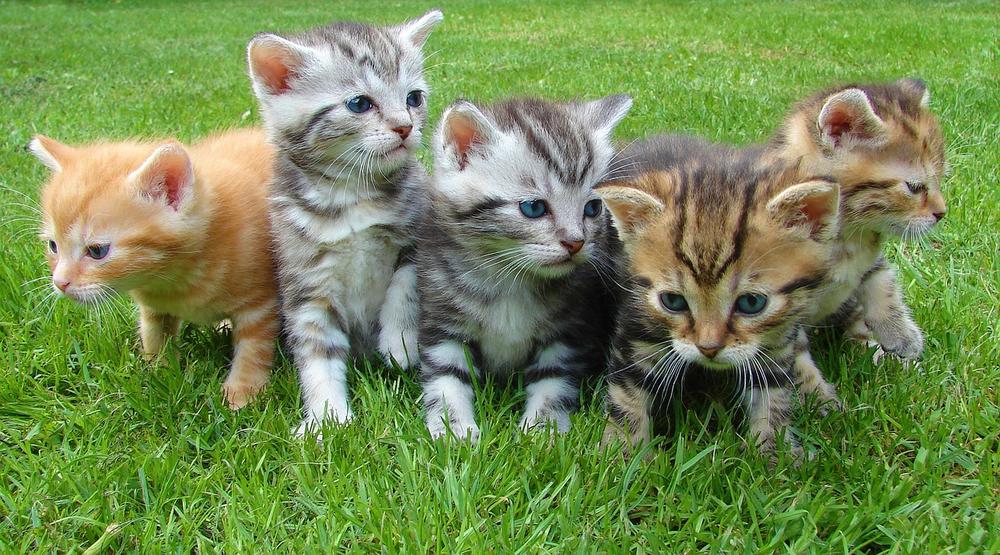
They're loaded with protein and vitamins, such as B12, which support your cat's overall vitality.
But here's something to bear in mind:
The hard exoskeleton of grasshoppers can be a challenge for your cat's digestion. Too much of it can lead to stomach pain.
So, moderation is key here, my friend. Feeding your cat grasshoppers occasionally adds variety, mental stimulation, and prevents boredom without causing harm.
And who knows?
Your cat might actually thank you for spicing things up a bit.
And most importantly, if you're wondering about what other foods are safe for your cat to munch on, look no further than my informative guide, Can Cats Eat Popcorn.
Discover the answers to all your questions about cats and popcorn, including potential risks and benefits.
Don't let curiosity stew, satisfy it with my definitive guide.
Why Do Cats Eat Grasshoppers?
You know, cats and grasshoppers make quite the odd pair.
Let me tell you why kitties can't resist munching on those little critters:
- Cats are born hunters, it's in their blood. They have this itch to chase and catch anything that moves, like grasshoppers. It's like a game for them, keeps them entertained and engaged with their wild side.
- Believe it or not, eating grasshoppers is generally safe for our feline friends. It's right up their hunting alley. The thrill of the chase and the joy of devouring these insects - they simply enjoy it.
- But don't get me wrong, cats don't actually need grasshoppers as part of their diet. It's more of a pastime, something to pass the time with. Think of it as a hobby rather than a dietary requirement.
- Here's the good news: if your furry companion happens to snack on a single grasshopper during playtime, don't fret. It won't cause any health issues. One tiny hopper won't do any harm.
So next time you catch your kitty pouncing on a grasshopper, remember it's just their curious nature and their killer instincts at work.
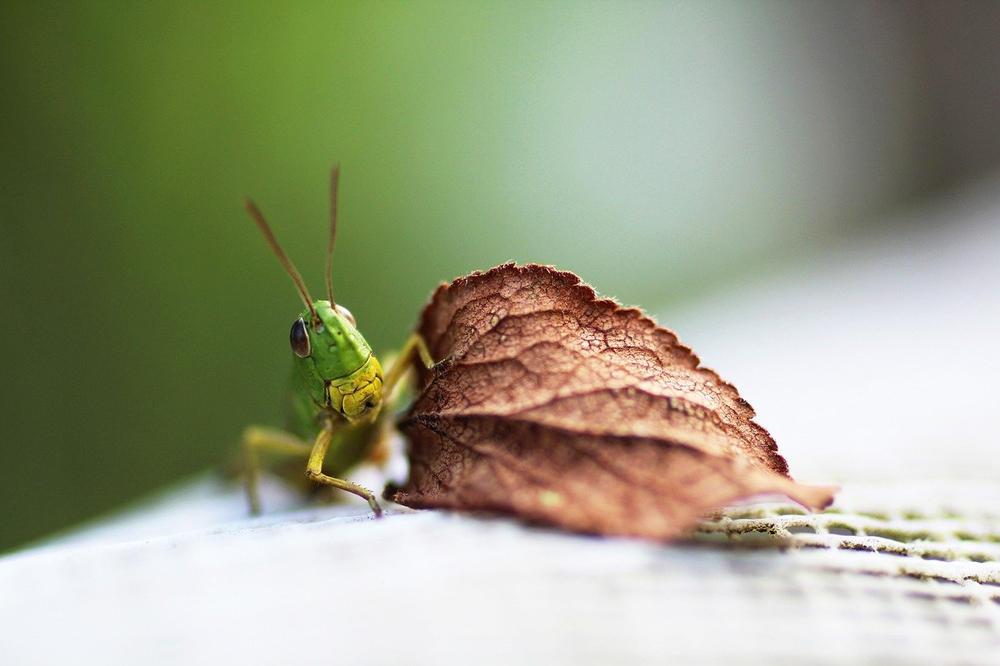
Keep giving them activities that stimulate their natural desires.
That way, they'll stay content and happy! 😸
But what if your curious kitty experiences some unexpected discomfort after munching on a grasshopper?
Let me share the potential consequences...
Steps to Take if My Cat Has Been Bitten by a Grasshopper
If your cat gets bitten by a grasshopper, you need to watch how they're doing and ensure it gets better in a few days. You might notice that your furry friend is feeling uncomfortable or irritated by the bite. Now, these symptoms should clear up on their own, but it's best to take care of your cat's health, so keep an eye on them. Don't hesitate to reach out to a vet to figure out the best way to handle this and ensure your cat's well-being.
Prioritize their health, my friend!
How to Get Rid of Grasshoppers From My House?
When it comes to getting rid of grasshoppers from your house, there are several effective methods:
- Consider using spinosad or Nosema locustae, which are natural alternatives to chemical pesticides.
- These alternatives will help control grasshoppers without risking your cat's health if they come into contact with them.
- Another effective method is to handpick the grasshoppers and drown them in soapy water. This eliminates them without the need for harmful chemicals.
- Creating an outdoor environment that minimizes grasshopper exposure can also be helpful. This includes removing weeds and tall grasses around your property.
- Remember that it's important to understand different control methods to keep your cats safe.
- However, if you're dealing with a severe grasshopper infestation, it's best to call a specialist or exterminator. They can provide professional guidance and prevent your cats from ingesting too many grasshoppers.
To effectively deal with grasshopper issues without putting your cats at risk, it is important to prioritize the well-being and health of your pets when handling pest problems around your house.
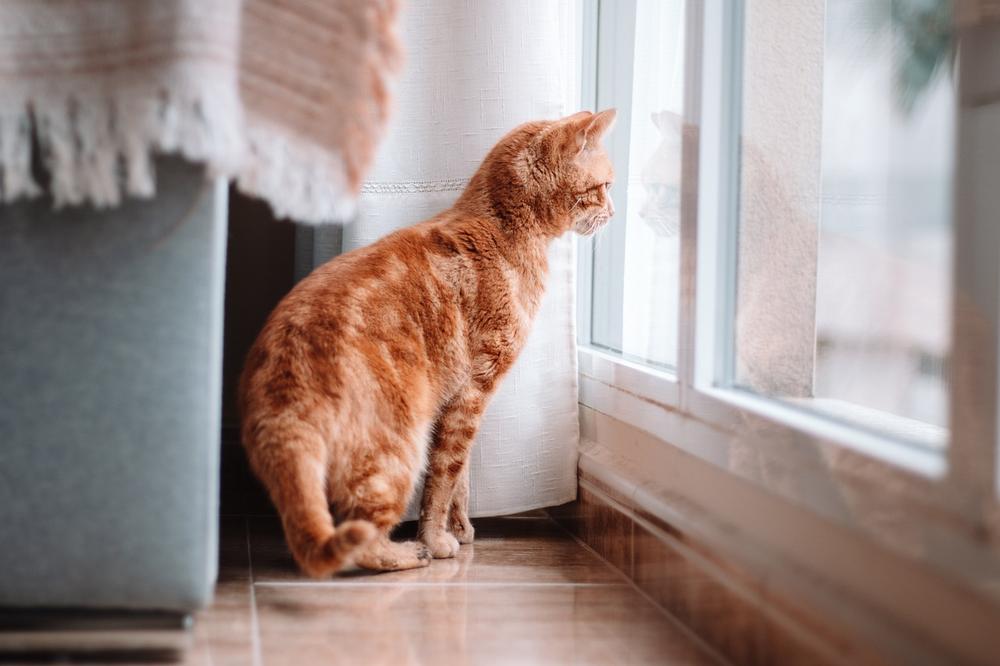
With that being said, you have the power to create a grasshopper-free environment that ensures both you and your cats can enjoy a happy and pest-free space.
Cats and Grasshoppers: Final Thoughts
Key Takeaways:
- Grasshoppers can cause mouth discomfort and gastrointestinal distress in cats.
- The size and toxicity of the grasshopper determine the level of risk.
- Brightly colored grasshoppers are toxic and poisonous to cats.
- Grasshoppers can carry parasites that can harm cats.
- Symptoms of grasshopper consumption include gastrointestinal distress, restlessness, lethargy, and aggression.
- Seek veterinary care if a cat exhibits health problems after consuming a grasshopper.
- Grasshopper bites are not dangerous or poisonous to cats, but some types can cause allergic reactions or venomous effects.
- Grasshoppers should not replace a cat's regular diet but can be safely incorporated occasionally.
- Grasshoppers should be free from pesticides and chemicals before feeding them to cats.
- Feeding cats grasshoppers occasionally provides variety and mental stimulation.
- Cats chase and eat grasshoppers due to their hunting instincts.
- Cat may not actually consume the bugs they catch, as hunting is more of a pastime.
- If a cat is bitten by a grasshopper, symptoms should go away on their own, but visit a veterinarian for proper care.
- Use natural alternatives or manual removal methods to control grasshoppers and protect cats from pesticides.
- Call a specialist or exterminator for severe grasshopper infestations to prevent cats from ingesting too many grasshoppers.
And that wraps up today's article.
If you wish to read more of my useful articles, I recommend you check out some of these: Do Cats Eat Worms, Can Cats Drink Dog Milk, Can Kittens Drink Human Breast Milk, and Do Cats Eat Ants
Talk soon,
-Sarah Davis